Senior Dogs for Adoption: What Pet Parents Need to Know!
The decision to adopt a pet is a critical one for any person or family. Older dogs in particular are looking for their forever home. And sometimes these senior dogs get looked over.
But they shouldn't.
Providing a safe haven for homeless senior dogs is one of the more selfless decisions one can make.
Table of Contents |
Introduction
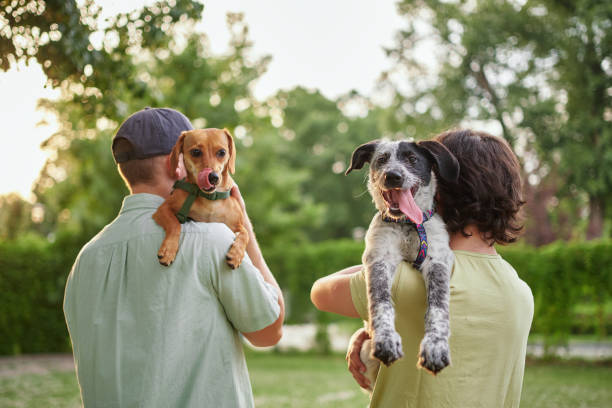
Adopting senior pets is always a beautiful decision. While challenging, these senior pets can add value to our lives in so many ways.
A senior pet can put things into perspective that not many other animals can.
Keep reading to learn about the benefits and how you can provide the best life possible to a lucky senior pet in your community.
Benefits of Adopting Senior Dogs
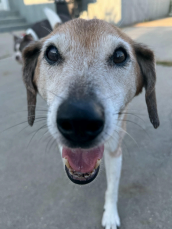
To rescue a senior dog can feel like getting the golden ticket on your first chocolate bar purchase. It’s simply enchanting with how many benefits you get with adopting a senior dog.
In front of you is the sweetest and most delicious senior dog sitting in front of you with their gray muzzle and hopeful eyes- melting into your arms.
But it doesn’t stop there!
The longer you’re in front of them, you’ve been apprised that your sweet senior friend also has a lowered adoption fee, no potty training needs, significantly less energy, appears even keeled, and in turn, little to no training because they already know how to walk on a leash, do a ‘sit’ etc.
Huzzah!
You are now under the impression you have a dog that will be your couch potato and Netflix buddy for life. While there is some truth to this, there’s actually much more to the senior dog that sits in front of us.
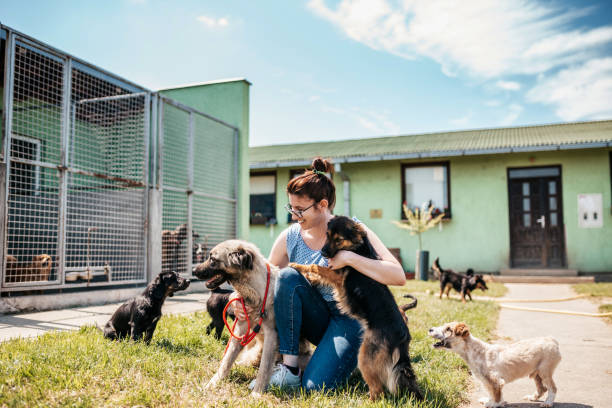
It’s been described by rescue professionals, fosterers, and senior dog adopters that witnessing the golden years is nothing short of a ‘life-changing’ experience. Many tear up at the sight of witnessing their senior dogs, for the first time, experience safety, comfort, a family’s love, and play for the first time.
As humans, it’s really easy to get stuck figuring out how much time do our senior dogs have left-but a senior dog doesn’t ruminate on that. They only know what’s in front of them.
To witness such presentness and joy is something only a senior dog adopter can experience, cherish and appreciate. While we love the couch cuddles and snuggles, there is truly nothing better than seeing a senior dog that was once in survival mode come alive because of your loving efforts.
If you are making the wholesome decision to adopt a senior dog-know that all professionals in the pet space are rooting for you. But how do we best prepare to take home and own a senior sweetie?
Preparing for Senior Dog Adoption
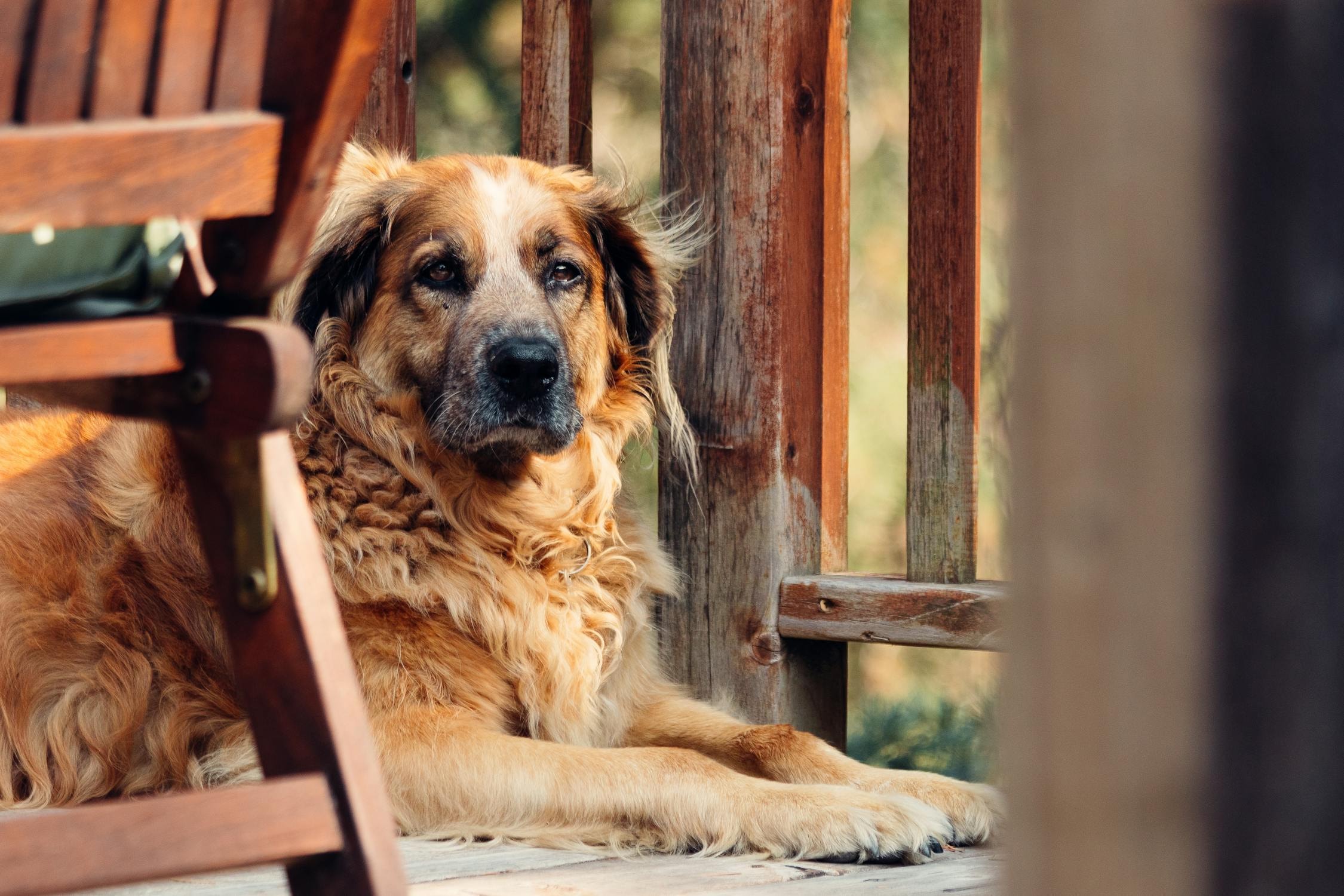
Just like for people, food plays a role in preserving and securing the dog as their bodies age. According to Cornell Richard P. Riney at Canine Health Center, there are 5 main components that you should incorporate into your senior dog’s diet such as, “Proteins, fatty acids, caloric needs, palatability aka, your dog’s sense of taste, and supplements”. The article notes to take a custom and educated approach as Joseph J. Wakshlag, PHD, D.V.M. goes on to say, “there is no one-size-fits-all for senior dogs.”
Supplements are always a good idea to incorporate into your senior dog’s diet as they can help alleviate or prolong pain and flare ups.
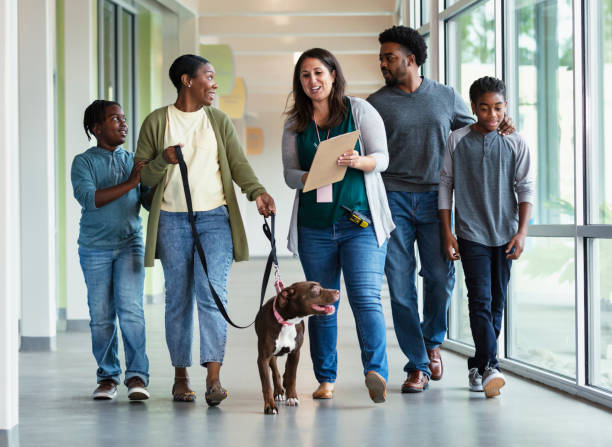
Companies like The BK Pets or Rose-Hip Vital offer lots of educational resources around their suggestions for supplements. They both offer supplements for purchase on both of their sites as well as budget friendly options too.
Toys for senior dogs never hurt but feel free to try out different types of toys and see what your senior dogs gravitate to.
For chew toys or bones-be mindful that your senior dog may have dental needs where you have to get softer bones. Look into soft bully sticks or natural items, such as duck feet, beef trachea, or anything you’re personally repulsed by-these are usually great treats for senior dogs.
Silicone lick mats are excellent and incredibly relaxing for dogs.
You can freeze them with peanut butter, raw egg, greek yogurt, or cottage cheese-ask your local canine nutritionist or follow a nutritionist with help guides, like The BK Pets.
Creating a Comfortable Home for Your Senior Dog

It starts with a quiet home, some soft beds, and blankets. It’s not surprising that once dogs, especially senior dogs, come out of the shelter the first thing they do is hit the sack. Keep in mind, this isn’t just your senior friend casually sleeping-this is your dog resting and recuperating.
Veterinarians suggest that senior dogs should be sleeping around 16 hours a day and about “18-20 hours if on the high side per day”, according to Dr. Rossman.
If you are bringing a rescue senior friend home-they just came from a warzone. Allowing them to sleep in peace, comfort, and freely is the best thing you can do to help them acclimate to your home.
Senior Dog Health and Wellness
It’s not easy to accept getting older, especially on a physical level where the body grows to have aches and pains.
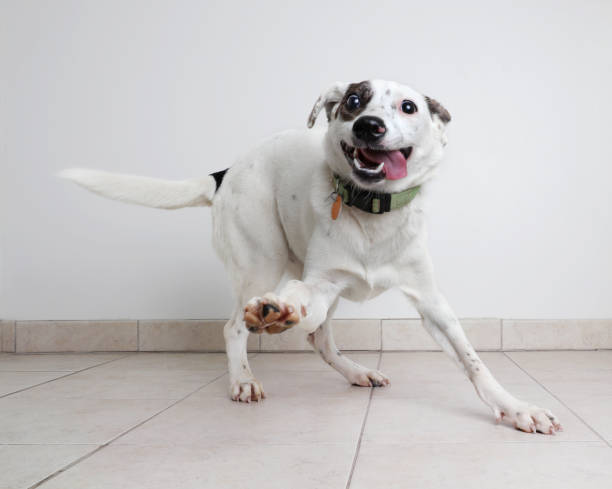
Senior dogs are no different.
They have lived a life of all sorts of either trauma or adventures. Their bodies are the living canvases of their journey leading up to you taking them home. While they’re safe with you now, their bodies will showcase mild to severe levels of physiological impact.
The range of impact a senior dog has endured will be dependent on the dog’s history prior to rescue, size, genetic history or breeds.
However, it’s still incredibly important to know that a dog’s measurement of physical wellness should not be based on what the naked eye sees. That is why for dogs of all ages, sizes and breeds, you should learn about a “Clinical Massage”.
A Clinical Massage is not just petting your dog. It’s a mapping of where pain, tightness or discomfort lives in your dog and using different techniques to release that pain or discomfort. You can learn about these massages through Canine Massage Therapy Centre or through Instagram accounts like Wellington Canine Body Work.
Training and Socialization for Senior Dogs
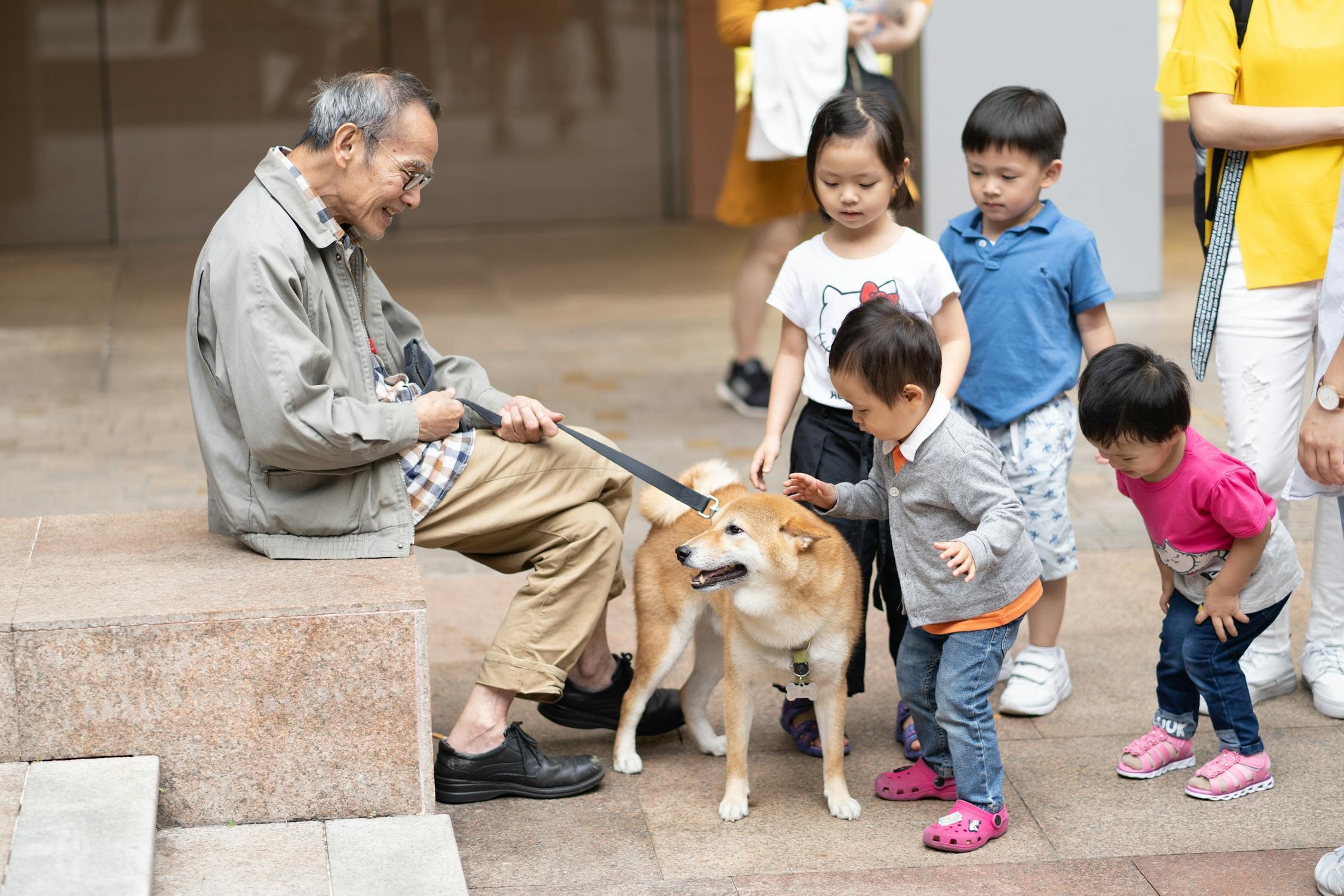
Getting in tune with your dog’s physical state can give you a measurement on their mobility and in turn their comfort level in socialization and training. Sociability for a senior dog can absolutely vary from dog to dog; some can come off as blasé while others can have the grumps and “just snap” at a puppy.
This is not uncommon.
“The missing link is advocacy,” says Brett Bailey, canine behavioral expert. "Every senior dog after a certain age will have hearing, vision impairment, physical aches and pain which can make them hyper aware or even enhance their fear tendencies.” Pain can often be an overlooked trigger for a behavioral flare up.
In turn, a senior dog reacting to a puppy or hyper dog is reacting because they’re trying to protect its physical state from getting hurt. When no one steps in to stop the interaction an older dog will do it themselves out of self-preservation.
This may not always be the reaction of every senior dog, according to Dr. Gary quoted in, The Ultimate Pet Health Guide, he states, “There is no one answer…It really depends on your dog” and continues to say that a senior dog’s reaction to a young dog or others is completely dependent upon their history of sociability. Ultimately, a senior dog with a history of a rich social life will be more tolerant of social interactions whereas a dog who’s been rescued from isolation and brought to a dog park might feel different.

This could be the same for training too. Oftentimes when training a dog, humans go into it with an expectation that the dog will do ANYTHING for a treat. This will not always be true especially if your senior dog has physical aches and pains, known or unknown, to the handler. In addition to that, the food value does not hold high palatability (sense of flavor) otherwise the effort for behavior won't be worth the reward. Old dogs can learn new tricks! However, this is a case by case basis-trainability is strongly based upon the relationship that was built during the post-adoption phase as well as the dog’s temperament itself. The ultimate thing to keep in mind is, don’t correct your senior dog or use tools to correct your senior dogs. This is particularly to avoid chronic stress which can absolutely shorten their lifespan.
Conclusion
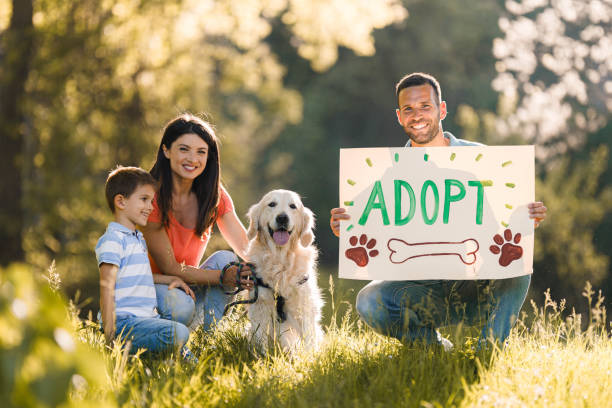
Senior dogs still have so much to give and so much life to live even in their golden years. Many are amazed by seeing their senior dogs come out of their shell & thrive by simply giving them a space and family of their own. The key to success with a senior dog starts with wanting to make them comfortable, being their companion, and giving them something fun to look forward to every single day, whether that be their meal, their walks, or resting next to their dog friends.
There are many senior dog experts accessible today that shed light on the education surrounding senior dogs whether that be through food, wellness and even end of life care. Through social media, podcasts, and other mediums, there are so many credible sources that help adopters and pet owners navigate the ups and downs of senior dogs.
Frequently Asked Questions
1. What is the average lifespan of a senior dog?
In determining your senior dog’s age, there are a couple opinions to consider. There are some that believe 7-9 determines the senior age.
However, in the article "How Old is Old? Comparing Dog Age to Human Age" by Ryan Llera, BSc, DVM and Lynn Buzhardt, DVM, they discuss how senior age can be dependent on the breed. For example, “a Great Dane becomes a senior citizen far earlier than a Pomeranian.” For smaller breeds, the age of a senior can be closer to 10-12 years old and for the XXL dogs can be around 6-7 years old.
2. How do I care for a senior dog's health and wellness needs?
- Spend time learning where your dog’s pain points are in their body. You can learn about massages and pain mapping through specialists.
- Invest in supplements that support your dog’s joints and gut health ○ Invest in a high value dog food so your dog has something to look forward to for every meal time!
- Make sure they have lots of rest and get exercise that suits there physical needs but also respects their physical limitations
- Find an excellent vet that you feel comfortable working with
3. Can senior dogs be trained and socialized?
Totally up to the dog and their social history. Some may love interactions and find them enjoyable while others could find the experience aversive. Best to introduce senior dogs to dogs that are indifferent or have low energy. Puppies and senior dogs is a whole other article.
Training is doable depending on the senior dog’s mobility, food drive, motivation, and the task of the training you’re doing. If you have a senior dog with behavior problems-it’s best to seek out a trainer that prioritizes positive reinforcement or uses least invasive and minimally aversive methods (Aka LIMA).
4. What are the benefits of adopting a senior dog?
There are so many! You get such a rich quality time with your senior friend and learn to really be present with how you take on life.
5. How do I prepare my home for a senior dog?
- Have lots of comfy blankets for your dog
- Learn your dog’s toy preferences by having some options out
- Get high value chews that your dog can gnaw on but wont break or hurt their teeth
- Silicone lick mats can help dogs go into a sleepy-state and are excellent before bed.





